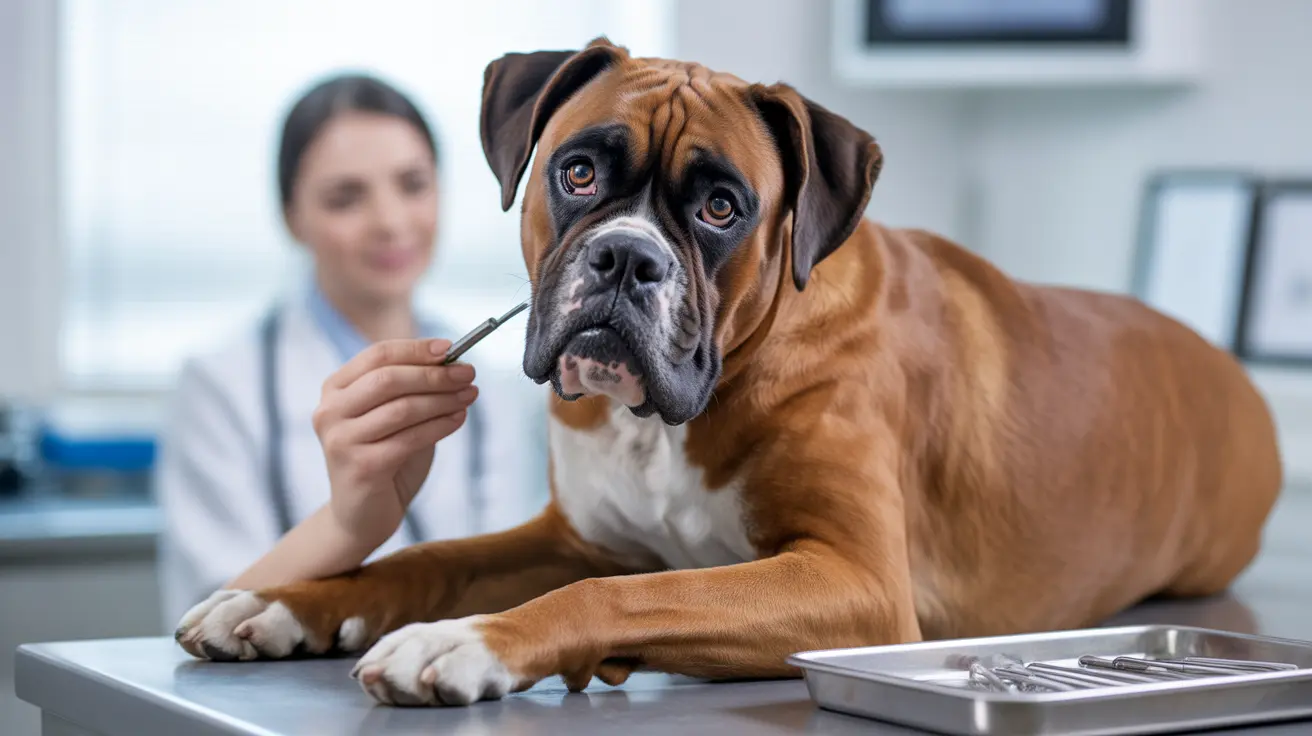Understanding Dog Inflamed Gums
Inflamed gums in dogs can be a serious concern for pet owners, potentially indicating various dental conditions including gingival hyperplasia, gingivitis, or other oral health issues. Understanding the causes, symptoms, and treatment options is crucial for maintaining your dog's oral health and overall well-being.
If you've noticed your dog's gums looking red, swollen, or abnormal, this comprehensive guide will help you understand what might be causing the problem and what steps you should take to address it.
Common Causes of Inflamed Gums in Dogs
Several factors can contribute to gum inflammation in dogs:
Dental Disease and Plaque Buildup
The most common cause of inflamed gums is the accumulation of plaque and bacteria along the gumline. Without regular dental care, this buildup can lead to gingivitis and more severe periodontal disease.
Gingival Hyperplasia
This condition causes excessive gum tissue growth, leading to swollen, enlarged gums that can cover portions of the teeth. It's particularly common in certain breeds like Boxers and Bulldogs.
Underlying Health Conditions
Systemic diseases, immune system disorders, and certain medications can all contribute to gum inflammation. Some dogs may develop inflamed gums as a reaction to medications like calcium channel blockers or immunosuppressants.
Recognizing the Signs of Gum Problems
Watch for these common indicators of gum inflammation:
- Red, swollen, or bleeding gums
- Bad breath (halitosis)
- Difficulty eating or dropping food
- Excessive drooling
- Pawing at the mouth
- Visible tartar buildup on teeth
- Changes in eating habits or behavior
Treatment Options for Inflamed Gums
Professional Dental Care
A veterinary dental cleaning is often the first step in treating inflamed gums. This procedure includes scaling to remove tartar, polishing, and a thorough examination of the oral cavity.
Medical Management
Your veterinarian may prescribe antibiotics, anti-inflammatory medications, or special oral rinses depending on the underlying cause of the inflammation.
Surgical Intervention
In cases of severe gingival hyperplasia, surgical removal of excess gum tissue might be necessary to restore normal gum architecture and prevent further complications.
Prevention and Home Care
Maintaining good oral hygiene is crucial for preventing gum inflammation:
- Regular tooth brushing with dog-specific toothpaste
- Dental chews and toys designed for oral health
- Water additives that help reduce plaque
- Regular professional dental check-ups
- High-quality diet that supports dental health
Long-term Management
Successfully managing dog gum inflammation requires ongoing attention and care. Create a consistent dental care routine and schedule regular veterinary check-ups to monitor your dog's oral health progress.
Frequently Asked Questions
What causes my dog's gums to become inflamed and swollen, and could it be gingival hyperplasia?
Dog gum inflammation can be caused by plaque buildup, bacterial infections, gingival hyperplasia, or underlying health conditions. Gingival hyperplasia specifically involves excessive gum tissue growth and is more common in certain breeds.
How can I tell if my dog's inflamed gums are due to gingivitis, gum overgrowth, or another dental problem?
While red, swollen gums typically indicate gingivitis, gum overgrowth (hyperplasia) appears as thick, enlarged tissue that may cover parts of the teeth. A veterinary examination is necessary for accurate diagnosis.
What are the treatment options for a dog diagnosed with gingival hyperplasia or inflamed gums?
Treatment options include professional dental cleaning, antibiotics for infections, anti-inflammatory medications, and possibly surgery for severe cases. The specific treatment plan depends on the underlying cause.
Are certain dog breeds more prone to gum overgrowth and inflammation, and how can I prevent it?
Yes, breeds like Boxers, Bulldogs, and Great Danes are more susceptible to gum problems. Prevention includes regular dental care, professional cleanings, and daily tooth brushing.
What home care steps and veterinary treatments can help manage and prevent inflamed gums in dogs?
Home care includes daily tooth brushing, dental chews, and proper diet. Professional care involves regular check-ups, dental cleanings, and prompt treatment of any oral health issues.






